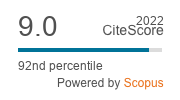Some food-derived opioid peptides have been reported to cause diseases, such as gastrointestinal inflammation, celiac disease, and mental disorders. Bifidobacterium is a major member of the dominant human gut microbiota, particularly in the gut of infants. In this study, we evaluated the potential of Bifidobacterium in the degradation of food-derived opioid peptides. All strains tested showed some level of dipeptidyl peptidase activity, which is thought to be involved in the degradation of food-derived opioid peptides. However, this activity was higher in bifidobacterial strains that are commonly found in the intestines of human infants, such as Bifidobacterium longum subsp. longum, B. longum subsp. infantis, Bifidobacterium breve and Bifidobacterium bifidum, than in those of other species, such as Bifidobacterium animalis and Bifidobacterium pseudolongum. In addition, some B. longum subsp. infantis and B. bifidum strains showed degradative activity in food-derived opioid peptides such as human and bovine milk-derived casomorphin-7 and wheat gluten-derived gliadorphin-7. A further screening of B. bifidum strains revealed some bifidobacterial strains that could degrade all three peptides. Our results revealed the potential of Bifidobacterium species in the degradation of food-derived opioid peptides, particularly for species commonly found in the intestine of infants. Selected strains of B. longum subsp. infantis and B. bifidum with high degradative capabilities can be used as probiotic microorganisms to eliminate food-derived opioid peptides and contribute to host health.
RESEARCH ARTICLE
Degradation of food-derived opioid peptides by bifidobacteria
T. Sakurai Related information
1Morinaga Milk Industry Co., Ltd., Frontier Research Department, Next Generation Science Institute, 1-83, 5-Chome, Higashihara, Zama-City, Kanagawa-Pref. 252-8583, Japan.
*Corresponding author: t_sakura@morinagamilk.
, A. Yamada Related information*Corresponding author: t_sakura@morinagamilk.
2Morinaga Milk Industry Co., Ltd., Functional Food Ingredients Department, Food Ingredients and Technology Institute, 1-83, 5-Chome, Higashihara, Zama-City, Kanagawa-Pref. 252-8583, Japan.
, N. Hashikura Related information1Morinaga Milk Industry Co., Ltd., Frontier Research Department, Next Generation Science Institute, 1-83, 5-Chome, Higashihara, Zama-City, Kanagawa-Pref. 252-8583, Japan.
, T. Odamaki Related information1Morinaga Milk Industry Co., Ltd., Frontier Research Department, Next Generation Science Institute, 1-83, 5-Chome, Higashihara, Zama-City, Kanagawa-Pref. 252-8583, Japan.
, J.-Z. Xiao Related information1Morinaga Milk Industry Co., Ltd., Frontier Research Department, Next Generation Science Institute, 1-83, 5-Chome, Higashihara, Zama-City, Kanagawa-Pref. 252-8583, Japan.
Beneficial Microbes: 9
(4)- Pages: 675 - 682

Published Online: April 10, 2018
Abstract
2022 Journal Impact Factor
5.4
source: Journal Impact Factor 2023™ from Clarivate™

Institutional Offers
For institutional orders, please contact [email protected].
-
A.A. Hibberd, C.C. Yde, M.L. Ziegler, A.H. Honoré, M.T. Saarinen, S. Lahtinen, B. Stahl, H.M. Jensen and L.K. Stenman
-
E.E. Blaak, E.E. Canfora, S. Theis, G. Frost, A.K. Groen, G. Mithieux, A. Nauta, K. Scott, B. Stahl, J. van Harsselaar, R. van Tol, E.E. Vaughan and K. Verbeke
-
K. Venema, J. Verhoeven, C. Beckman and D. Keller
-
E. Arvidsson Nordström, C. Teixeira, C. Montelius, B. Jeppsson and N. Larsson
-
J.E. Haarhuis, A. Kardinaal and G.A.M. Kortman
-
E.E. Blaak, E.E. Canfora, S. Theis, G. Frost, A.K. Groen, G. Mithieux, A. Nauta, K. Scott, B. Stahl, J. van Harsselaar, R. van Tol, E.E. Vaughan and K. Verbeke
-
K. Lippert, L. Kedenko, L. Antonielli, I. Kedenko, C. Gemeier, M. Leitner, A. Kautzky-Willer, B. Paulweber and E. Hackl
-
K. Tsilingiri and M. Rescigno
-
M. Ozen and E.C. Dinleyici
-
Y. Kobayashi, T. Kuhara, M. Oki and J.-Z. Xiao



